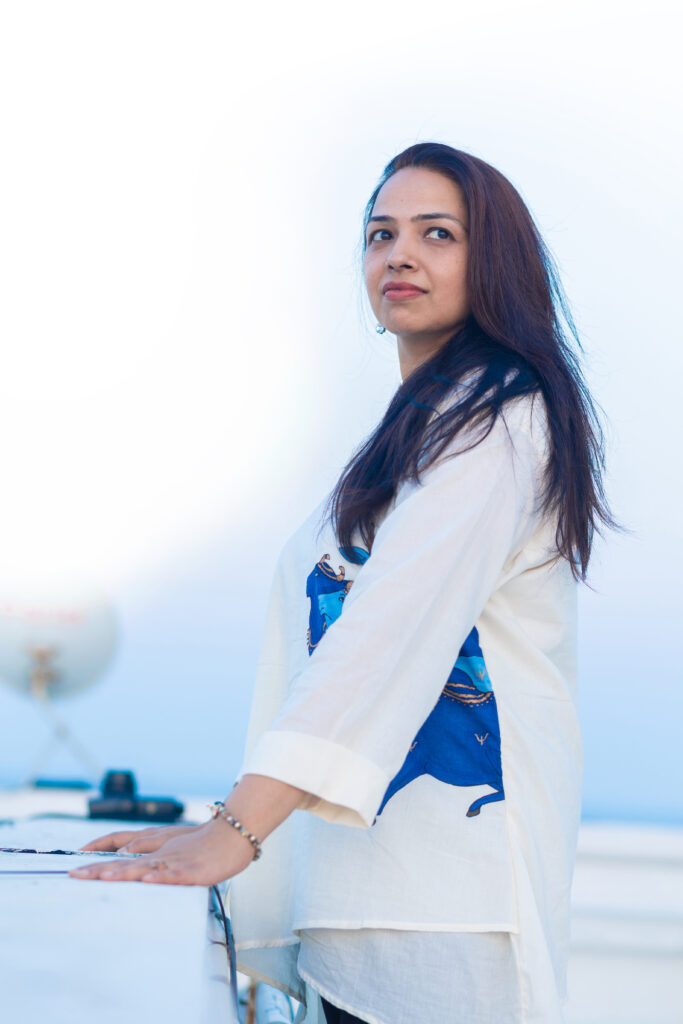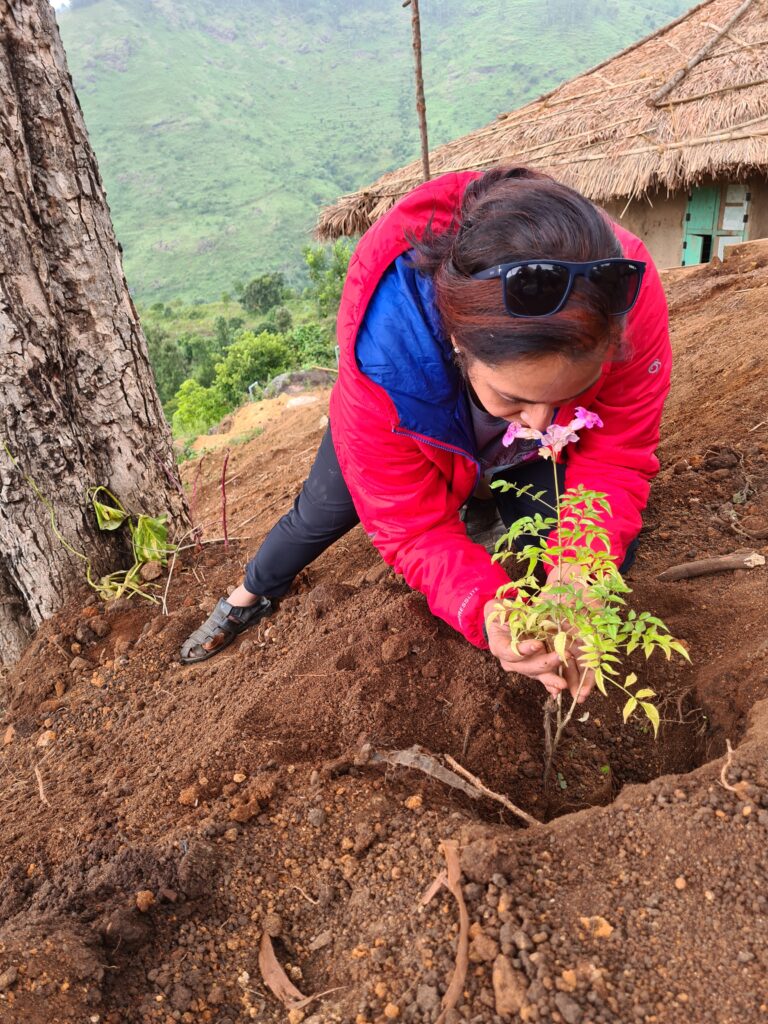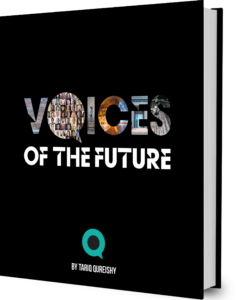Sustainability is a loaded – and vague – term nowadays. What is sustainability, and what does its impact mean for the future? Aruna Narayanan breaks down the barriers to understanding and decodes its complexities, while her insights serve as a guiding light of hope. This podcast was not just a mere exchange of words and ideas but a clarion call to action for everyone on this planet.
While her career began in the corporate towers of consulting, it veered unexpectedly toward the uncharted territories of sustainability. Her story isn’t just about a career choice but a calling that beckoned her to make a real impact. Her career trajectory, a blend of strategic thinking and a heartfelt connection to the scause is a testament to the power of conscious choice and purposedriven leadership.
An alumnus of Harvard Business School and Cambridge Institute of Sustainability Leadership, Aruna has mastered the art of weaving sustainability into the fabric of corporate existence with vast expertise in sustainability, ESG, environment solutions, marketing, customer experience, and corporate social responsibility. In a career spanning over two decades, she’s held leadership positions at various organizations, such as Dulsco, Accenture, and the Ocwen Financial Corporation.

She founded Real Impact Solutions, a collaborative platform that enables companies to adopt sustainability and achieve real benefits. Aruna also serves on the advisory boards for various companies, guiding them on embedding sustainability and ESG into their businesses by leveraging the UN Sustainable Development Goals.
I believe ‘green’ is the new digital, and ‘sustainable’ is the new profitable. Aruna concurs – with a caveat: “The definitions of sustainability aren’t cast in stone. I don’t have a singular definition of sustainability.” She decodes sustainability: “At a macro level, sustainability is the ability to sustain. This applies to individuals, organizations, and countries. For individuals, sustainability falls under three pillars: health, wealth, and relationships. If any of these goes off balance, life isn’t beautiful anymore. In the short term, companies may make vast amounts of money but destroy the environment; in the long term, those companies will collapse when the natural resources are depleted. Similarly, if an organization has the right people and takes care of them and the environment, but its bank balance is zero, that isn’t a sustainable business either. Sustainability is not CSR.” With passion and conviction, she declares: “Sustainability is enjoying today without comprising tomorrow.
For Aruna, the three pillars of a sustainable organization are ‘people, planet, and prosperity.’ She explains: “That’s a more holistic approach; it applies to individuals, companies, and countries for the planet to be sustainable for all.”

Despite knowing the consequences of climate change, our transition towards a more sustainable economy is slower than it should be. Established global organizations like the UN and WHO, created to solve past problems, are trying to stay relevant towards solving the new situations we all face. This is exacerbated by some corporations ‘profit only’ motives and consumer preference for cheap, convenient products. The combination of institutional inertia, corporate myopia, and public complacency (all three are human emotions) presents a formidable barrier to inclusive progress. Aruna’s response is illuminating: “We, as a generation, are in the transition phase between what the future needs to look like and what’s done in the past. We have the key to changing how the future will look. We must be realistic, focus on the present, and create the future now, and it starts by looking at problems at a micro level.” According to her, this transition isn’t just about technological or economic shifts but also about a fundamental change in mindset and values.
And she lives this belief authentically. Aruna’s connection with her farm is a deeply personal and cherished aspect of her life. The farm, for her, is more than just a piece of land; it represents a sanctuary and a return to basics, a place where she can connect with nature and community. Her journey as a farmer began unexpectedly during the COVID-19 pandemic. It allowed her and her family to live in nature and become part of a local community. This experience was far from a typical vacation; it was an immersive, life-altering experience.
Living in the mountains, Aruna observed and embraced the simple, contented lives of the local people. She noticed their genuine happiness and how they lived with modest means. This experience offered her a unique perspective on life, contrasting sharply with the fast-paced, often materialistic world of corporate sustainability.
It led her to create the EcoFarm: “It started as a collaboration with the local community regarding land stewardship. It enables urban people who want a piece of nature to have a meaningful way to be a part of it while having a very grounded experience through simple farm activities. How many of the young generation have eaten a fruit straight from a tree? They don’t know what a carrot plant looks like, but they eat carrots. So, take people back to the earth and create an experiential movement. Unless you experience it, you won’t be sensitized towards sustainability. There are no lecturing or awareness sessions needed afterward. You know what you need to do; you know where you can contribute; you know where you can create impact.

The conversation moves to trust, truth, and ethics. We lack trust in our society, we don’t really know what truth is anymore, and there’s a huge question mark over ethics in media, AI, etc. How do we restore trust, truth, and ethics in a sustainable world? Her views are deeply intertwined with her beliefs in transparency, integrity, and ethical leadership. “Transparency is the bedrock of trust,” she asserts. She recognizes that trust and truth are foundational elements for a sustainable society and economy, and their restoration is critical in the current era of skepticism around information trustworthiness.
For leaders and organizations to embrace this mindset shift, they must see that sustainability needs to be very profitable – or it won’t change their operations. “Sustainability isn’t an expense; it’s an investment in people, the planet, and our prosperity.” That’s the message that must be amplified around the world.
UAE hosted the COP28 convention in December 2023. “It’s fantastic to see the public and corporate engagement around COP28, bringing climate change to the mainstream,” she enthuses. “From an event, it grows into a mass movement, spreading climate literacy and climate action worldwide.” By bringing together representatives from various countries, industries, and communities, the COP conferences catalyze change, driving nations and organizations toward more sustainable, accountable, and environmentally responsible behaviors.
Projecting Aruna into the future, looking to her 85th birthday, her vision is deeply personal and reflective of her life’s work and values. “I hope I can count back on ten things where I’ve created real impact,” she shares. Aruna’s focus on ‘real impact’ rather than on herself as an entity speaks to her humility and commitment to the cause of sustainability.
If Aruna were to leave a message in a bottle to be discovered years later, her message would be succinct yet profoundly meaningful: “Smile and be the light.” It’s a message to embrace optimism and to be a beacon of positive change in the world. She serves as a timeless reminder of the importance of maintaining a positive outlook and being a force for good in the world.














